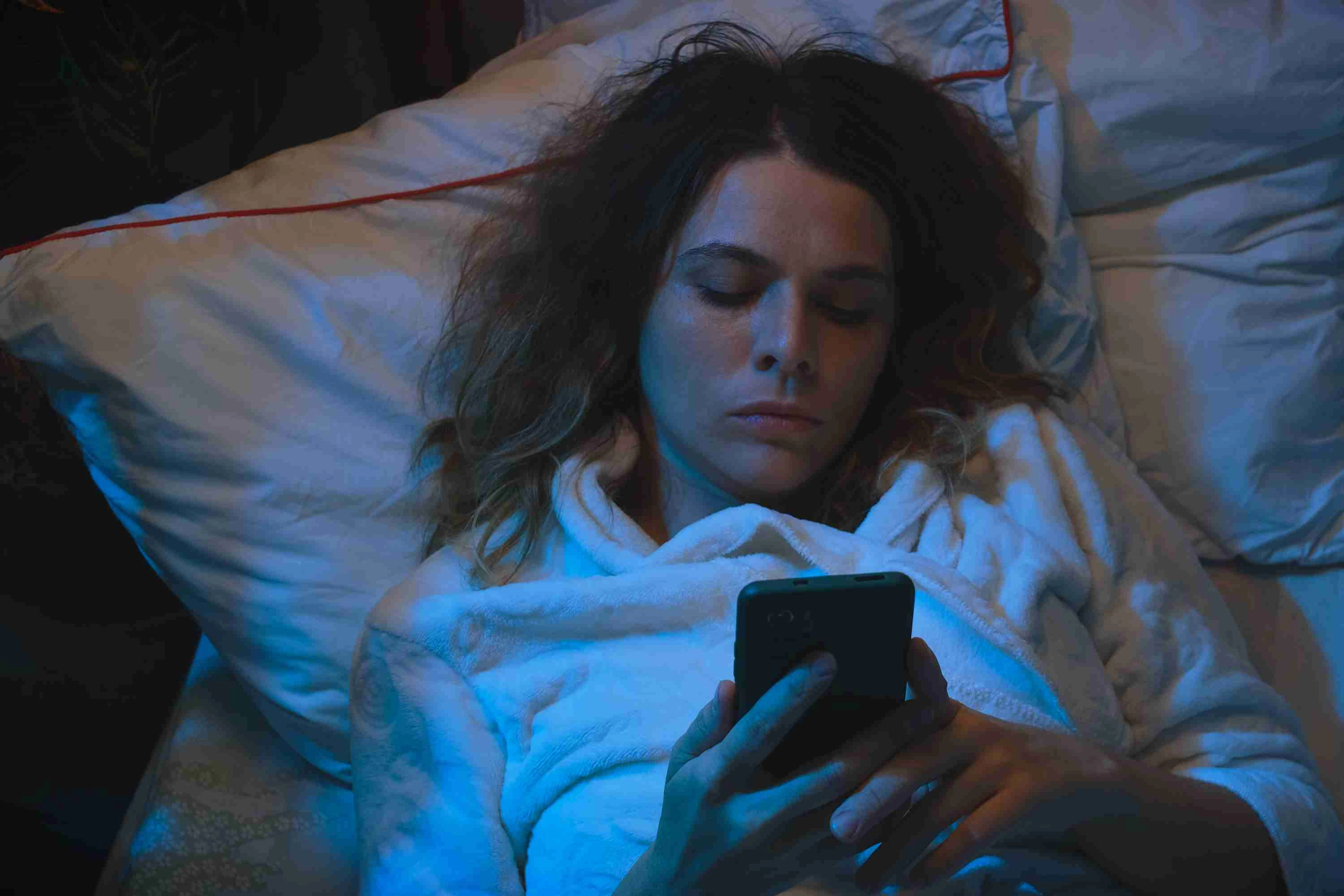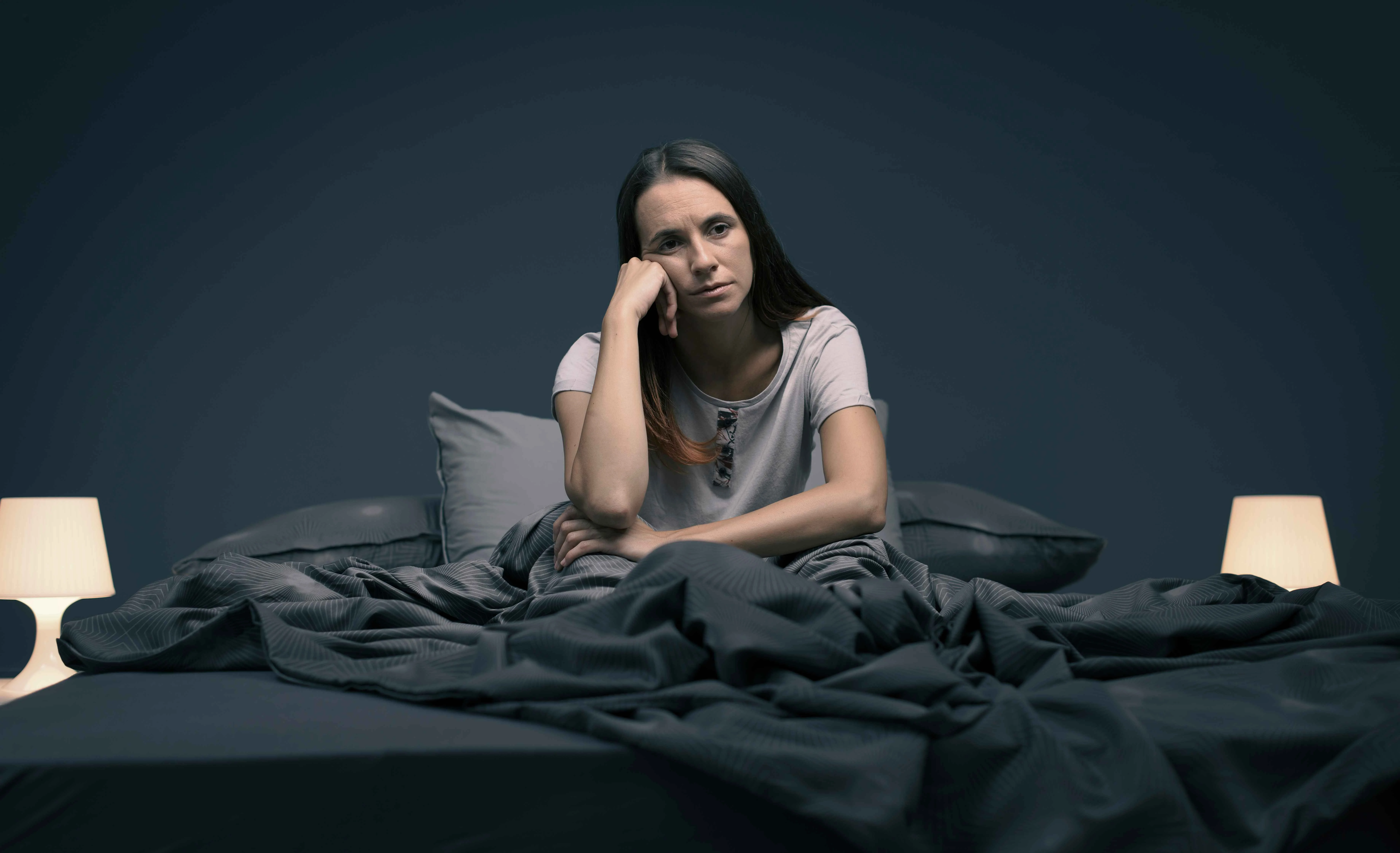Diagnosing insomnia can be challenging, as it is a subjective experience, and there is no definitive test to confirm its presence. However, healthcare professionals rely on a combination of patient interviews, sleep diaries, and sometimes additional tests to accurately diagnose insomnia.
What is Insomnia?
Insomnia is a common sleep disorder that affects millions of people worldwide. It is characterized by difficulty falling asleep, staying asleep, or both.
Common Symptoms of Insomnia
- Difficulty Falling Asleep: Individuals with this condition may find themselves lying awake in bed for extended periods, struggling to initiate sleep. This can be accompanied by racing thoughts, anxiety, or restlessness, further exacerbating the problem.
- Daytime Fatigue: Due to the lack of quality sleep, individuals with insomnia often experience excessive tiredness during the day. This fatigue can impact their ability to concentrate, perform daily tasks, and maintain productivity.
- Mood Disturbances: Individuals with insomnia often experience irritability, anxiety, and depression due to the chronic lack of sleep. These mood disturbances can have a significant impact on their overall well-being and quality of life.
- Negative Impact on Cognitive Function: Sleep deprivation can impair a person's ability to concentrate, remember information, and make decisions. This can affect their performance at work or school and make it challenging to engage in daily activities.
- Gastrointestinal Issues: Many people with insomnia report experiencing problems such as indigestion, heartburn, or stomach pain. These issues can be attributed to the body's stress response, which can disrupt normal digestive processes.
- Muscle Aches: Individuals with this sleep disorder often wake up feeling sore and achy, especially in their neck, back, and shoulders. This can be attributed to the body's inability to fully relax and repair itself during sleep.
Insomnia Risk Factors
- Age: As individuals age, they may experience changes in their sleep patterns, such as having trouble falling asleep or waking up frequently during the night.
- Sex: Women are more likely to experience insomnia than men because hormonal fluctuations during the menstrual cycle, pregnancy, and menopause can disrupt sleep patterns in women. Additionally, women are more prone to experiencing stress and anxiety, which are common causes of insomnia. Learn more about Insomnia and Women.
- Family History: Genetics can influence various aspects of sleep, including the duration and quality of sleep. If one or both parents have a history of insomnia, there is a higher likelihood that their children may develop the condition as well. Learn More about Insomnia and Genetics.
- Environment: Factors such as noise, temperature, and light levels can disrupt sleep and make it difficult to fall asleep or stay asleep. For example, living in a noisy urban area or having a bedroom that is too hot or too bright can contribute to insomnia.
- Work: Individuals who have irregular work schedules, such as shift workers or those who work night shifts, often experience disruptions in their sleep patterns. High-stress occupations that require long hours and intense mental or physical effort can also contribute to the development of insomnia.
- Medical Conditions: Certain medical conditions, such as chronic pain, respiratory problems, gastrointestinal issues, and hormonal imbalances, can disrupt the sleep patterns and lead to difficulty falling asleep or staying asleep.
- Stress: Everyday stressors, such as work pressures, relationship issues, or financial concerns, can make it difficult for individuals to relax and fall asleep. Chronic stress can also lead to anxiety and depression, which are associated with insomnia.
- Lifestyle Habits: Poor sleep hygiene practices, including irregular sleep schedules, excessive caffeine or alcohol intake, and electronic device usage before bedtime, can negatively impact sleep quality. Irregular sleep schedules disturb the body's internal clock and make it difficult to fall asleep at a consistent time each night.
Methods for Diagnosing Insomnia

It is crucial to accurately diagnose insomnia, and there are several methods available for diagnosing insomnia that healthcare providers might use to develop a plan to combat its symptoms.
Sleep History and Patient Interviews
The first step in diagnosing insomnia is to conduct a detailed medical history interview. The healthcare professional will ask questions about the individual's sleep habits, such as how long it takes them to fall asleep, how often they wake up during the night, and how refreshed they feel upon waking.
Sleep Diaries and Self-Reported Questionnaires
In addition to the medical history interview, a healthcare professional may also utilize subjective measures to assess an individual's sleep patterns.
This can include the use of sleep diaries or questionnaires that ask about the individual's sleep quality, daytime functioning, and any symptoms related to insomnia.
These measures provide valuable information about the severity and impact of the sleep disorder.
Polysomnography
Polysomnography involves monitoring various physiological variables during sleep, such as brain activity, eye movements, and muscle tone.
Polysomnography provides detailed information about an individual's sleep architecture and can help identify any underlying sleep disorders, such as sleep apnea or restless legs syndrome, which may be contributing to insomnia.
Actigraphy
Actigraphy is another objective measure that can be used to diagnose insomnia. It involves wearing a wristwatch-like device that records movement patterns and provides an objective measure of an individual's sleep-wake patterns over an extended period.
Actigraphy is particularly useful for assessing sleep patterns in naturalistic settings, such as at home, and can help identify any discrepancies between an individual's subjective perception of their sleep and their actual sleep behavior.
Blood Tests
Blood tests for insomnia can identify any underlying medical conditions or imbalances in hormones that may be causing or contributing to sleep disturbances. For example, thyroid disorders or hormonal imbalances can disrupt the sleep-wake cycle and lead to insomnia.
Physical and Mental Health Assessments
A healthcare professional will evaluate the patient's overall physical health, looking for any underlying medical conditions that could be contributing to their sleep difficulties.
In addition to physical health assessments, mental health assessments are also critical in diagnosing insomnia. Insomnia can often be associated with underlying mental health conditions such as anxiety or depression.
Common Challenges in Diagnosing Insomnia
Diagnosing insomnia can often be a challenging task for healthcare professionals due to several common challenges, such as overlapping symptoms with other disorders or misdiagnosis and delayed diagnosis.
Overlapping Symptoms with Other Disorders
Diagnosing insomnia can be a challenging task for healthcare professionals due to the overlapping symptoms it shares with other disorders.
Insomnia symptoms can also be seen in other sleep disorders such as sleep apnea or restless leg syndrome, as we will discuss in detail below.
Misdiagnosis or Delayed Diagnosis
Insomnia shares some symptoms with other sleep disorders and mental health conditions, leading to confusion in accurately identifying the root cause.
For instance, individuals with depression or anxiety may experience difficulty sleeping, which could be mistaken for insomnia.
Differential Diagnosis: Ruling Out Other Conditions

When diagnosing insomnia, it is crucial to rule out other conditions that may have similar symptoms to eliminate the potential of misdiagnosing the patients and treat the root cause.
Conducting a thorough evaluation and considering the patient's medical history, sleep patterns, and symptoms can help rule out these other conditions and accurately diagnose insomnia.
Sleep Apnea
Sleep apnea can lead to poor sleep quality and excessive daytime sleepiness, similar to insomnia. However, with sleep apnea, the interruptions in breathing are often accompanied by loud snoring and choking or gasping sounds.
A sleep study can help to diagnose sleep apnea and differentiate it from insomnia.
Restless Leg Syndrome (RLS)
RLS is characterized by an overwhelming urge to move the legs, often accompanied by uncomfortable sensations such as tingling or burning.
These sensations typically worsen during periods of rest or inactivity, making it difficult for individuals with RLS to fall asleep or stay asleep. Assessing for the presence of these leg movements and uncomfortable sensations can help differentiate RLS from insomnia.
Circadian Rhythm Disorders
Circadian rhythm disorders are characterized by disruptions in the body's natural sleep-wake cycle, leading to difficulties falling asleep or staying asleep at the desired times.
Common examples of circadian rhythm disorders include jet lag, shift work sleep disorders, and delayed sleep phase disorders.
It is important to assess the patient's sleep schedule and daily routine to determine if a circadian rhythm disorder may be contributing to their sleep difficulties.
Medication Side Effects
One crucial aspect to consider is medication side effects. Many medications, such as certain antidepressants or stimulants, can disrupt sleep patterns and cause difficulties falling or staying asleep.
Therefore, it is essential to review the patient's medication history and inquire about any recent changes or additions.
Treatments for Insomnia

Insomnia can have a significant impact on one's quality of life, leading to daytime fatigue, irritability, and impaired concentration.
Fortunately, there are several treatment options available for insomnia that can help individuals improve their sleep patterns and overall well-being.
Cognitive-Behavioral Therapy for Insomnia (CBT-I)
This is one of the insomnia therapies that focuses on identifying and modifying the thoughts and behaviors that contribute to sleep difficulties. CBT-I typically involves several components, such as sleep hygiene education, stimulus control therapy, relaxation techniques, and sleep restriction therapy.
Medication
There are various types of medications available that can help with insomnia. These include over-the-counter sleep medications, prescription sedatives, and certain antidepressants that have sedating properties.
However, it is important to note that medication should be used judiciously and under the guidance of a healthcare professional.
Acupuncture
Acupuncture is an insomnia treatment that involves the insertion of thin needles at specific points on the body to stimulate energy flow and promote relaxation. Yoga combines physical postures, breathing exercises, and meditation to enhance overall well-being and reduce stress.
Mindfulness meditation involves focusing one's attention on the present moment without judgment or attachment to thoughts or emotions.
Exercise
Regular exercise has been shown to be an effective treatment for insomnia. Engaging in physical activity on a regular basis can help improve the quality and duration of sleep.
Exercise helps to regulate the body's internal clock, or circadian rhythm, which plays a key role in determining when we feel tired and when we feel awake.
FAQs
How do you know if you have insomnia?
If you are experiencing persistent trouble sleeping asleep or staying asleep, it may be time to consult a doctor regarding your insomnia. While occasional sleeplessness is common and often resolves on its own, chronic insomnia can be a sign of an underlying medical or psychological condition.
How common is insomnia?
Insomnia is estimated to affect around 30% of adults worldwide. It is more common in women and older adults, with higher rates reported among those above the age of 65. Insomnia can be caused by various factors, including stress, anxiety, certain medical conditions, medications, and poor sleep habits.
Is anxiety related to insomnia?
Anxiety and insomnia are closely related and often coexist. Anxiety can cause or worsen insomnia, and the lack of sleep can, in turn, exacerbate anxiety symptoms. When individuals experience anxiety, their mind is in a state of constant worry and overthinking.
How do I self-diagnose insomnia?
Keep a sleep diary for at least two weeks, noting down your sleeping patterns, any difficulties falling asleep, and any other symptoms you experience. This can help identify any patterns or triggers that may be contributing to your insomnia.
Conclusion
Insomnia diagnosis can be challenging due to its subjective nature and lack of definitive tests. However, through a combination of patient interviews and sleep diaries, healthcare professionals can gather enough information to make an accurate diagnosis.
It is important for individuals experiencing sleep disturbances to seek medical attention and undergo a proper diagnosis to receive appropriate treatment for their insomnia.
Jessica H.
Jessica is a reviewer, writer, and sleep enthusiast at Sleepiverse. Jessica graduated with her master's degree in Nursing research and education. She is a registered nurse and currently works in the Intensive Care Unit. Since becoming a nurse, Jessica has worked the night shift, which means a disrupted sleep schedule. Knowing she needed to function at her best while caring for patients at night, she spent a lot of time researching how to sleep well with a difficult schedule.


